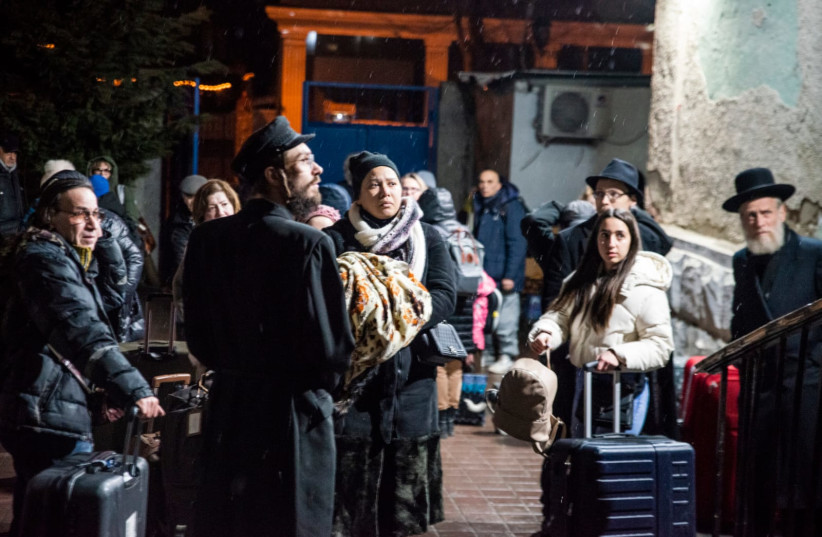Thanks to Chabad Rabbi Menachem Traxler and Chabad emissaries of the Ukraine now living in Israel, nearly 1,000 newly arrived olim, representing 180 Ukrainian families, will consume over 20,000 kosher Passover meals, among members of their former communities and their rabbis.
Former citizens of Kyiv, Kharkiv, Dnipro, Odesa, Donetsk, Mariupol, Herson, and Zhitomir will share the entire Pessah festival with one another in places like Ma’aleh Adumim, Netanya, Beit Hannah, Beit Rivka and Vered Jericho.
Traxler is the founder and director of Pantry Packers, the food distribution arm of Colel Chabad, the oldest continuously operating network of social services in Israel. He greeted many of the new immigrants at Ben-Gurion Airport and began considering ways to help them.
Traxler and other Chabad emissaries devised a plan to bring the traumatized Ukrainian families together community by community at yeshivot around the country.
Rebbetzin Miriam Moskowitz and her husband, Rabbi Moshe Moskovitz, emissaries in Kharkiv since1990, built a thriving Jewish community there, where over 400 children of all ages attended weekly programs.

After the Russian invasion, which hit Kharkiv especially hard, the Moskowitzes arrived in Israel to organize a Purim celebration for 300 newly arrived refugees.
The couple continues to minister to their dispersed community, both in Israel and Ukraine. “The community is currently in four places—Kharkiv, elsewhere in western Ukraine, eastern Europe and in Israel.”
She describes her former synagogue, in the firing zone, where 100 people are living in the basement with boarded up windows. She notes, “There are 10,000 left in Kharkiv.”
A team of Chabad emissaries remain in Kharkiv and provide 150-200 hot meals a day, and are organizing Passover Seders. Rabbi Moskowitz still hoped to return to Kharkiv to conduct the communal seder. “We want to go back,” though his wife acknowledges, “It will be a different Kharkiv when we get back.”
The Moskowitzes are keenly aware of the importance of Passover for the community. “It is the only festival the Jews of the Soviet Union know about,” nowadays, she says. “I hope in this festival of freedom, people will have good thoughts... everyone is lost and overwhelmed,” and most families will spend Passover without their menfolk between 18-60 who are not permitted to leave Ukraine. She is happy to be joined by 31 families from Kharkiv in what she describes as “Pessah Camp.”
Rabbi Shlomo Wilhelm, the chief rabbi of Western Ukraine, arrived there in 1994 and helped nearly 3,500 of Zhitomir’s estimated 5,000 Jews to enter Moldova and Poland by bus, or immigrate to Israel.
Wilhelm arrived here last month with 100 students from the local Jewish day school. One emissary remains in Zhitomir to tend to the remaining Jewish community.
Rabbi Pinchas Vishetsky of Donetsk is no stranger to abruptly picking up and resettling his community. During the 2014 rebel uprising in Donetsk he brought many members of his community to Kyiv. “We left everything behind,” Rabbi Vishetsky recalls. Some later returned to Donetsk.
Vishetsky, who keeps in touch with his congregants via WhatsApp, is preparing for Passover in Nir Etzion with approximately 75 families. “Psychologists will be here to help.” Traxler is proud of his fellow emissaries. “The emissaries in the Ukraine act as our social workers... When refugees come, we are their first call.”
